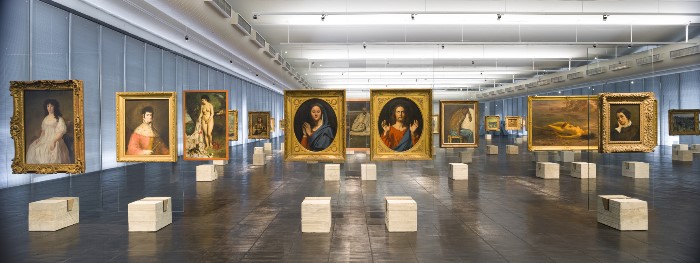
By Victor Pitanga
After the corona virus outbreak, cultural gatherings have undergone profound changes. Entertainment has a tradition of being consumed collectively – whether in music festivals, cinemas, theatres, museums, religious ceremonies and so forth. Indeed, we used to listen to vinyl or CDs, watched movies on DVDs at home or through online streaming platforms even before the global pandemic.
Now it’s different. Cultural gatherings are prohibited and sporting events forbidden. Museums are closed, as are movie theatres and religious temples. In Brazil, soap operas and tv shows have stopped production and culture is completely dependent on online media. We had long seen new sources of culture from YouTube, Instagram or Twitter, but – when successful – they were complemented by live music concerts, stand-up acts or art exhibitions. Because of the crippling effects of Covid-19, everything remains online.
This unusual scenario gave birth to new ideas. Music festivals became streamed private concerts. Brazil is the most prolific country in that arena and Brazilians are already one of the most active online users. Four of the five most watched “lives” were from Brazilian performers, the highest ranked one from Marília Mendonça with 3,4 million viewers on April 8th.
The sole exception was Andrea Bocelli’s performance in the Vatican during Easter which ranked 3rd with 2,8 million viewers. Before the world was quarantining the record for the biggest live performance on social media belonged to Beyoncé with almost 500,000 people online. It is worth mentioning that Beyoncé was singing at Coachella.
Today’s live performances are done from home and are almost improvised. Brazilians have been flocking those online concerts. It’s a chance to see a more intimate side of their idols. Likewise, museums start offering virtual tours to people stuck at home. The MASP in São Paulo is one of them. It is unique chance for citizens all over the world to explore art collections in different countries. Culture has never been so accessible – if you have internet.
Brazil’s relationship with culture is multifold. The conservative wave that shook the 2018 elections changed some of society’s view on culture. Although, it’s difficult to think of culture as a monolith, Brazil’s current government has tried to disregard cultural manifestations that have a liberal standpoint. Part of Brazilian society agrees with them. They would argue public money could only sponsor cultural activities that would align with the government’s ideals or with their own preconceived ideas about family, politics, economy, and – obviously – culture.
Their preconceptions blindsided them to the fact that cultural manifestations are diverse, and democracies must let them be represented. It plays a big part in moving the economy and maintaining traditions, but also in clashing with the status quo and giving birth to new ideas.
It’s expected that the coronavirus’ impact on culture will surpass 100 billion Brazilian Reais – approximately 20 billion US Dollars using today’s exchange rate. People will lose their jobs and small companies will go bankrupt.
Culture will continue its expansion to online media. Openings will continue to happen online. Book readings will be downloadable. Art will be home-delivered. The question is whether this isa trend or just a temporary change in direction due to social isolation. Will we change the ways we consume culture?
Will remote culture overcome culture as we used to know? Those are questions that depend not only on us, but also on technological developments and the length of this health crisis.
Victor Pitanga is an expert on international relations, business development, social responsibility and sustainability issues. His experience includes working with companies from different sectors as well as an NGO, which include: MATCH Connections, Brazil-China Chamber, Edusport and Geoparadise.

